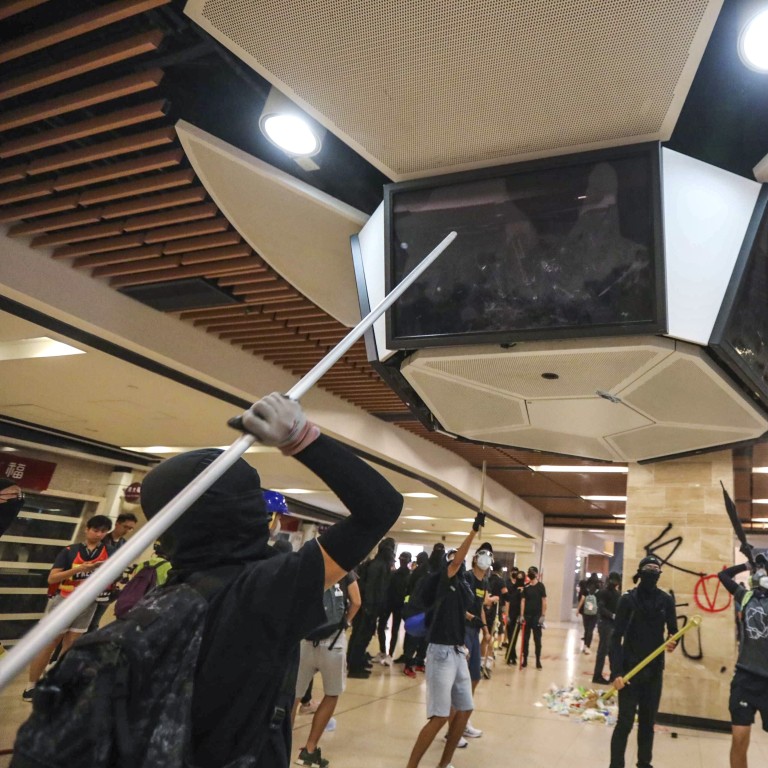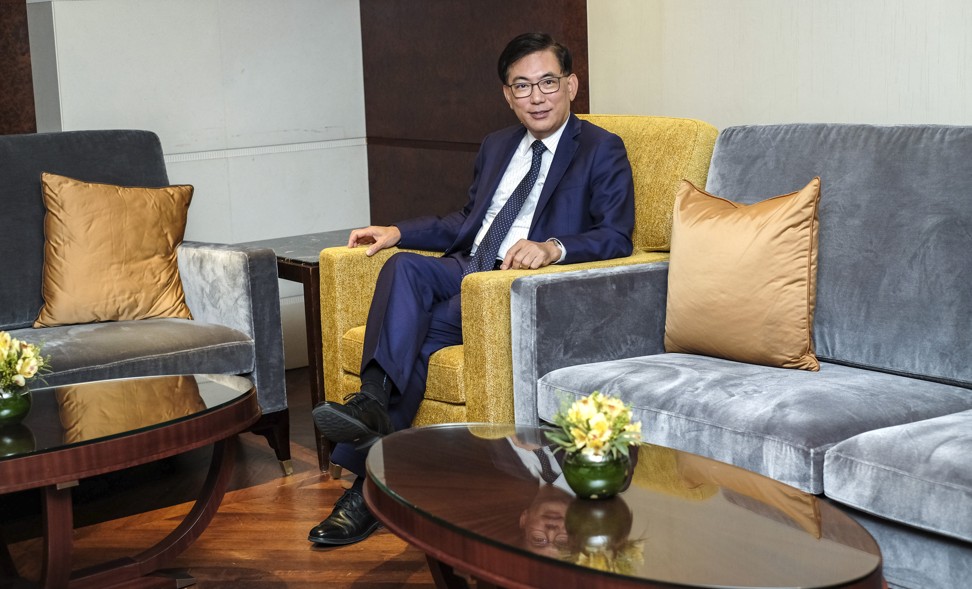
Hong Kong’s suburban mall operator Link Reit seeks to engage opposition councillors after asset sales trigger protests
- Recent sales of assets to foreign investors have triggered community backlash on concern about higher rents, future of family-run stores
- Shares have dropped 18 per cent since July due partly to weak business sentiment following months of anti-government protests
Link Reit, the biggest real estate investment trust in Asia whose business practices have at times provoked protests from local communities, is looking forward to engaging with Hong Kong’s new slate of pan-democratic district councillors to improve their rapport.
While some of the councillors are new faces in the local political scene, the company is keen to meet up with them to understand the views on the ground where Link Reit’s portfolio of assets, such as public wet markets and shopping centres are located, according to chief executive officer George Hongchoy.
“Obviously, some of them we do not know – they are new to us, so we want to meet them as soon as possible, to understand their vision for the districts,” Hongchoy said in an interview with the South China Morning Post. Now you see someone who can represent certain districts, so at least consultation can work.”
In Hong Kong’s district council elections on November 24, pro-democracy candidates swept 17 of the 18 district councils that previously were all controlled by pro-Beijing parties.

The elections followed almost six months of anti-government protests that left retail outlets and public property damaged during the city’s worst political crisis.
The company has drawn flak from citizens for some of its decisions to sell its assets to foreign investors. They worry that the new owners would drive up rents and force local family-run stores out of business. Hong Kong ranks as the world’s most expensive city, alongside Paris and Singapore, according to the Economist Intelligence Unit.
Alan Leong, chairman of the Civic Party, said district councils under the control of pan-democratic parties could provide more oversight on some of Link Reit’s activities, even if in advisory capacity.
Pan-democrats would be more vigilant on issues relating to Link Reit activities, such as how they allocate spaces in shopping markets and the way they increase rents, Leong added.
Link Reit was listed in 2005 with a portfolio of 151 malls and 79,000 parking spaces in a privatisation. The assets were previously held by the Hong Kong Housing Authority.
Hongchoy, who has been the CEO of Link Reit since 2010, is uncertain what the election results mean for property prices and business sentiment in the city.
Much depends on how the government reacts to the results, he added. The need for calm is crucial for its tenants with Christmas and Lunar New Year in the coming weeks.
“The concern in the last few months of not knowing who to talk to, to engage (with), to try and find a solution. We now have these politicians,” he said. “They are generally younger, (and) that they are representing the people in those districts. So there is a platform for engagement, so that’s positive.”
Since July, Link Reit’s share price has dropped more than 18 per cent, partly dragged down by poor business sentiments amid anti-government protests. About two-thirds of Link Reit’s tenants are engaged in food and beverage and retail sector, such as wet markets and supermarket chains.
Hongchoy said that the company has waived rents for tenants in some shopping malls that had been closed as a results of those protests. While the average rental prices have been stable, its ability to charge higher rents on new leases has weakened.
Rental reversion, a measure of the increase or decrease in new rental agreements, rose 18.1 per cent on average in the six months through September, compared with 22.5 per cent in the same period last year, according to its latest interim report.

